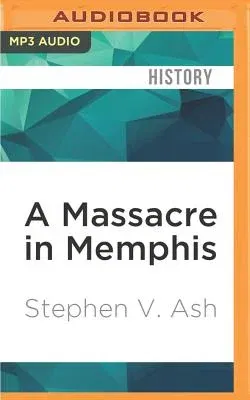An unprecedented account of one of the bloodiest and most significant
racial clashes in American history
In May 1866, just a year after the Civil War ended, Memphis erupted in a
three-day spasm of racial violence that saw whites rampage through the
city's black neighborhoods. By the time the fires consuming black
churches and schools were put out, forty-six freed people had been
murdered. Congress, furious at this and other evidence of white
resistance in the conquered South, launched what is now called Radical
Reconstruction, policies to ensure the freedom of the region's four
million blacks--and one of the most remarkable experiments in American
history.
Stephen V. Ash's A Massacre in Memphis is a portrait of a Southern
city that opens an entirely new view onto the Civil War and its
aftermath. A momentous national event, the riot is also remarkable for
being "one of the best-documented episodes of the American nineteenth
century." Yet Ash is the first to mine the sources available to full
effect.
Bringing postwar Memphis to vivid life, he takes us among newly arrived
Yankees, former Rebels, boisterous Irish immigrants, and striving freed
people, and shows how Americans of the period worked, prayed, expressed
their politics, and imagined the future. And how they died: Ash's
harrowing and profoundly moving present-tense narration of the riot has
the immediacy of the best journalism.
Told with nuance, grace, and a quiet moral passion, A Massacre in
Memphis is Civil War-era history like no other.

